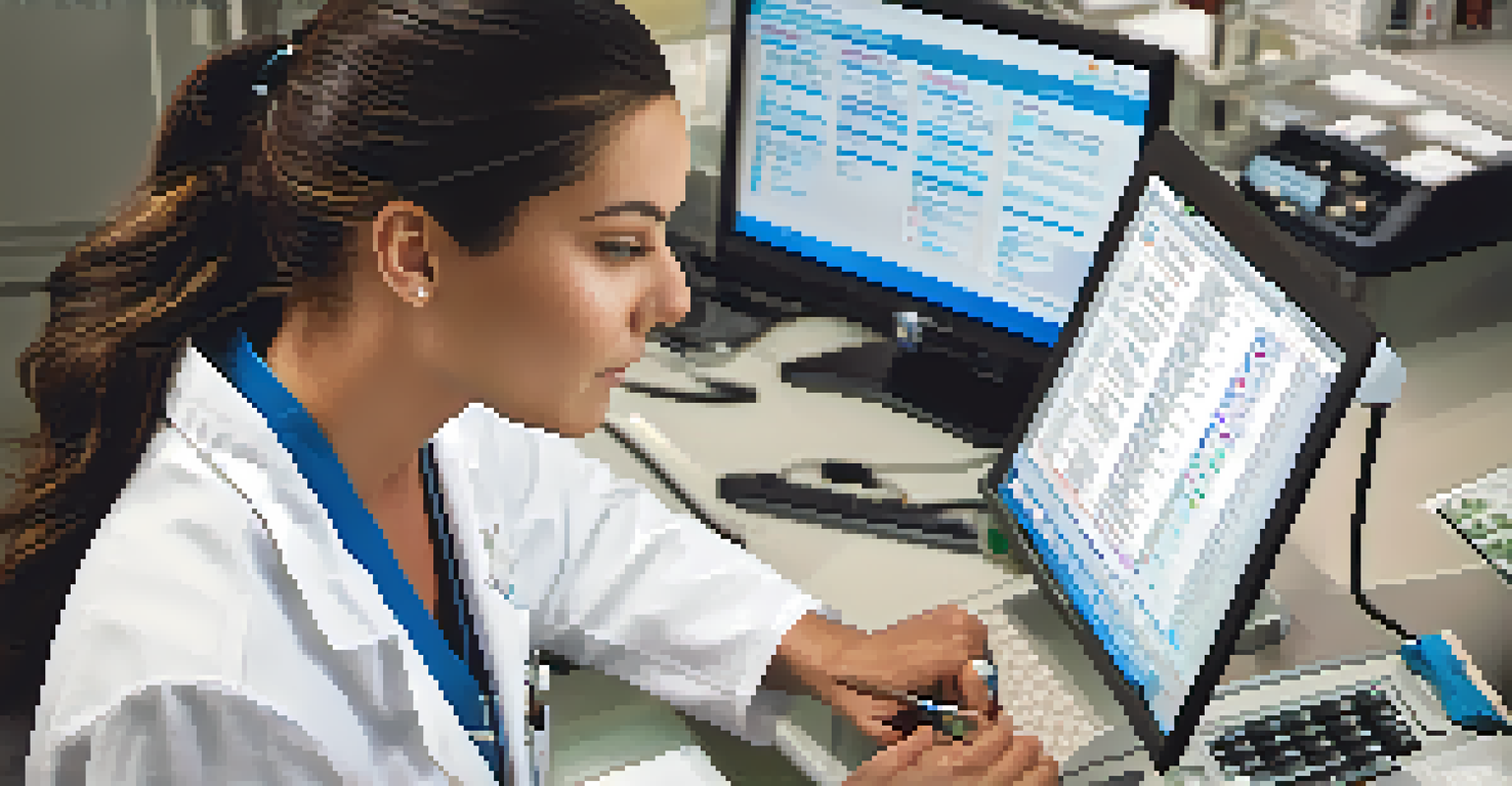Advancements in Clinical Pharmacy: Personalized Medicine Focus

Understanding Personalized Medicine in Pharmacy
Personalized medicine tailors medical treatment to individual characteristics, needs, and preferences. In clinical pharmacy, this means pharmacists play a crucial role in ensuring that medications are optimized for each patient. By utilizing genetic information, lifestyle factors, and environmental influences, pharmacists can help create a customized medication plan.
Personalized medicine is a medical model that proposes the customization of healthcare, with decisions and treatments tailored to the individual patient by use of genetic or other information.
This approach contrasts with the one-size-fits-all model of traditional medicine, which often leads to trial and error in finding the right treatment. Personalized medicine enhances medication efficacy while minimizing side effects, making it a win-win for both patients and healthcare providers. The more we understand about a patient's unique profile, the better we can support their health outcomes.
For instance, a patient with a specific genetic marker might respond exceptionally well to a particular medication, while another might experience adverse effects. By using this information, pharmacists can make informed decisions that lead to better therapeutic outcomes.
The Role of Pharmacogenomics in Personalized Medicine
Pharmacogenomics is the study of how genes affect a person's response to drugs. This field is pivotal in personalized medicine, as it allows pharmacists to predict how patients will metabolize medications based on their genetic makeup. By integrating pharmacogenomic testing into routine clinical practice, pharmacists can ensure that patients receive the most effective drugs.

For example, certain patients may benefit from higher doses of a medication due to their genetic profile, while others may need lower doses to avoid toxicity. This precision not only enhances patient safety but also reduces healthcare costs by minimizing ineffective treatments. As research in this area progresses, more medications will be developed with pharmacogenomic insights.
Personalized Medicine Enhances Care
Tailoring medical treatment to individual profiles improves efficacy and minimizes side effects.
Moreover, it empowers patients by involving them in their treatment decisions. When patients understand how their genetics influence their medication choices, they are more likely to adhere to their treatment plans and engage actively in their healthcare.
Enhancing Patient Outcomes Through Medication Management
Effective medication management is crucial in personalized medicine, as it ensures that patients receive the right medications at the right time. Clinical pharmacists are uniquely positioned to monitor drug interactions, adherence, and overall patient responses to therapy. By actively engaging in medication reviews, they can identify and address potential issues before they escalate.
The best way to predict the future is to create it.
For instance, if a patient is experiencing side effects from a prescribed medication, a clinical pharmacist can recommend alternative therapies or adjustments that may provide relief. This proactive approach can lead to improved patient satisfaction and health outcomes. It also fosters a collaborative relationship between pharmacists, patients, and other healthcare providers.
Additionally, personalized medication management can lead to a decrease in hospital readmissions. By ensuring that patients understand their medications and are on the right regimen, pharmacists can play a key role in keeping patients healthy and out of the hospital.
Technology's Role in Advancing Personalized Pharmacy Care
With the rise of technology, personalized medicine in clinical pharmacy has become more accessible and efficient. Electronic health records (EHRs) now allow pharmacists to access comprehensive patient data quickly, aiding in informed decision-making. These systems can flag potential drug interactions and provide alerts based on a patient's medication history.
Furthermore, telepharmacy services have emerged, enabling pharmacists to offer consultations remotely. This is particularly beneficial for patients in rural or underserved areas who may not have easy access to a pharmacist. Technology bridges the gap, ensuring that personalized care reaches those who need it most.
Pharmacogenomics Drives Precision
Understanding genetic responses to medications allows pharmacists to optimize treatment plans.
Moreover, mobile health apps are facilitating direct communication between pharmacists and patients, allowing for real-time medication management. This integration of technology not only enhances patient engagement but also empowers pharmacists to deliver tailored care more effectively.
Challenges Faced in Implementing Personalized Medicine
While the advancements in personalized medicine are promising, several challenges remain in its implementation within clinical pharmacy. One major hurdle is the need for widespread education and training among pharmacists. Many professionals may not be familiar with the nuances of pharmacogenomics or personalized care strategies, which can hinder effective implementation.
Additionally, the cost of genetic testing and personalized medications can be a barrier for some patients. Insurance coverage varies widely, and not all plans may support these innovative approaches. This disparity can lead to inequities in access to personalized medicine, leaving some patients behind.
Moreover, there are ethical considerations surrounding genetic testing and data privacy. Ensuring that patient data is protected while still leveraging it for personalized care poses a significant challenge that the healthcare industry must address.
Future Directions of Personalized Medicine in Pharmacy
The future of personalized medicine in clinical pharmacy looks bright, with ongoing research and development paving the way for more tailored treatment options. As our understanding of genetics and drug interactions deepens, pharmacists will be able to provide even more precise recommendations for their patients. This evolution will likely lead to the development of new medications specifically designed for individual genetic profiles.
Moreover, increased collaboration between pharmacists, physicians, and researchers will enhance the integration of personalized medicine into everyday practice. By working together, these professionals can create comprehensive care plans that prioritize patient-specific needs and preferences.
Technology Improves Patient Access
Advancements like EHRs and telepharmacy enhance personalized care and patient engagement.
As we move forward, the emphasis on patient-centered care will continue to grow, with personalized medicine at its core. This shift signifies a transformative change in how we approach healthcare, ultimately leading to better outcomes for patients across the board.
The Impact of Personalized Medicine on Patient Engagement
Personalized medicine not only enhances treatment efficacy but also significantly boosts patient engagement. When patients are involved in their treatment plans, understanding how their unique characteristics influence their health, they are more likely to adhere to prescribed therapies. This increased involvement fosters a sense of ownership over their health outcomes.
Pharmacists play a crucial role in this engagement process by educating patients about their medications and the rationale behind personalized treatment strategies. By demystifying complex medical concepts, pharmacists can empower patients to make informed decisions regarding their health.

As patients become more engaged, they are more likely to communicate openly with their healthcare team, leading to improved therapeutic relationships. This collaborative approach ultimately enhances the overall effectiveness of care and leads to better health outcomes.